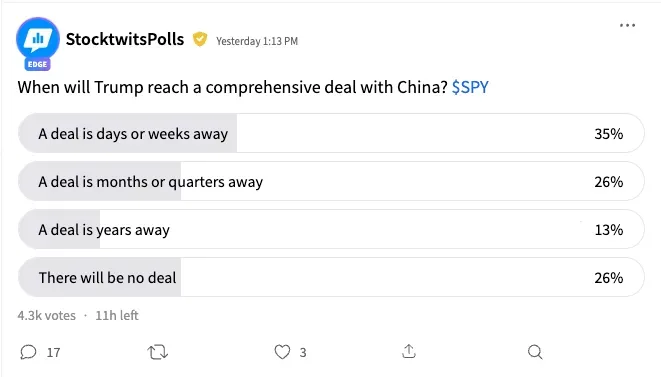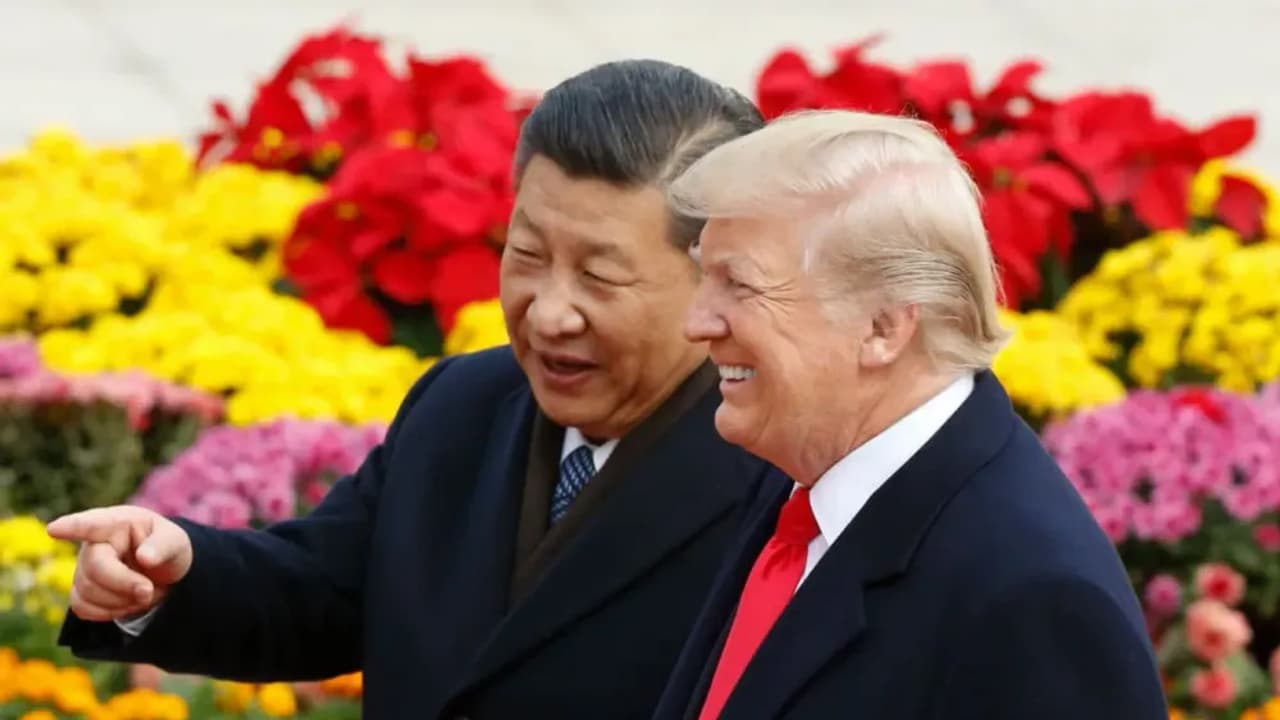Treasury Secretary Scott Bessent said Wednesday that the U.S. won't make the first move and that the de-escalation should start mutually.
President Donald Trump's hardline stance against China has triggered macroeconomic uncertainty. Prediction market Kalshi now predicts a 54% chance of a U.S. recession.

Retail users on Stocktwits, however, are largely hopeful of a near-term resolution of the U.S.-China impasse.
An ongoing Stocktwits poll that has received responses from over 4,000 users showed that a majority (61%) think a China trade deal will be struck soon.
Of these, 35% see a resolution in a few days or weeks, while 26% expect it to be done within months or quarters.
Those who see a long-drawn-out schedule ("years away") accounted for 13% of the respondents.
However, over one-fifth (26%) said they see no deal forthcoming, reflecting sizable pessimism regarding mending U.S.-China relations.

A user who responded to the poll said their hopes are due to the view that Trump will capitulate.
However, another user said the U.S., which wants to be the world leader, may not give in soon.
Although the U.S. president announced sweeping levies for all trading partners as part of the "Liberation Day" tariffs on April 3, he has paused the country-specific import duties on most nations to allow leeway for bilateral agreements.
China has been the notable exception, with the second-largest economy and the U.S.'s third-biggest trading partner, not counting blocs of nations, still inviting a hefty 245% rate.
The ratcheting up of the Chinese import tariffs came after a series of moves and countermoves by the U.S. and China.
China now has a 125% counter levy on imports from the U.S. but has said it will ignore any further American duties.
However, it has unequivocally conveyed its displeasure with the Trump administration's "unilateral bullying" and also warned other nations against striking bilateral deals with the U.S. that could hurt its rights and interests.
In a slight thaw, U.S. Treasury Secretary Scott Bessent said this week he sees a de-escalation in the tariff standoff with China very shortly.
While talking to reporters on the sidelines of Wednesday's International Monetary Fund and World Bank annual meetings, Bessent clarified that the U.S. won't make the first move and that the de-escalation should start in a mutual manner, Reuters reported.
He also said he expects negotiations to begin soon, although the full re-balancing process could take two to three years.
In Thursday's early premarket session, the SPDR S&P 500 ETF (SPY) exchange-traded fund (ETF) fell 0.62% to $532.11, while the Invesco QQQ Trust (QQQ) ETF was down 0.87% at $450.60.
The SPY and QQQ are now down over 8.4% and 11%, respectively, for the year-to-date period.
For updates and corrections, email newsroom[at]stocktwits[dot]com.<
